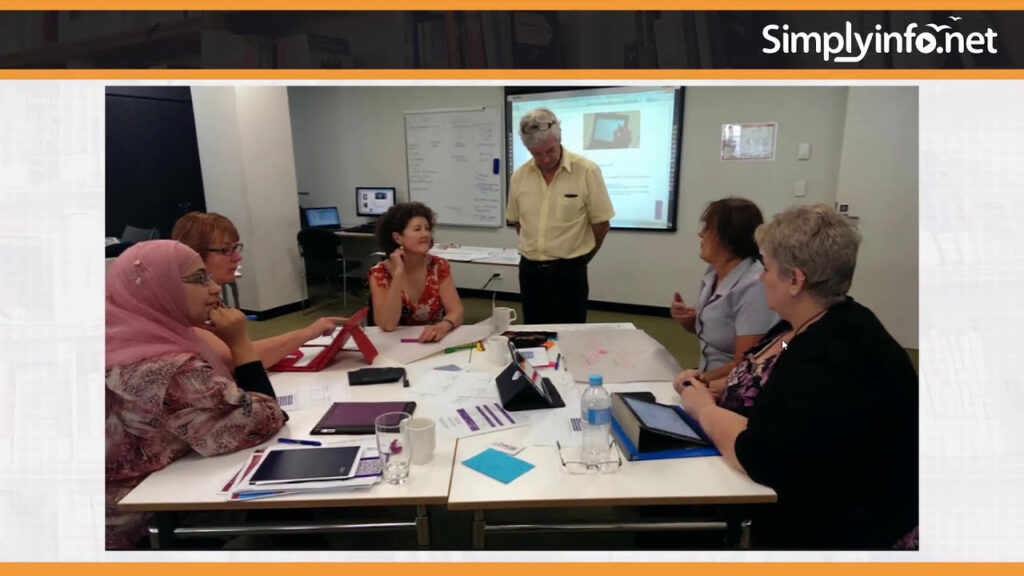In today’s rapidly changing world, the concept of education has evolved from being a one-time pursuit to a continuous journey. With advancements in technology and constant shifts in the job market, it has become imperative for individuals to constantly learn and adapt to stay relevant. This has led to the rise of adult education programs, which cater to the learning needs of individuals beyond the traditional school years. These programs not only provide opportunities for personal growth but also have a significant impact on the development of society as a whole.
Importance of Adult Education Programs
Adult education programs play a crucial role in addressing the current challenges faced by individuals and society. They provide a platform for individuals to enhance their skills and knowledge, leading to their personal and professional growth. Here are some key reasons why adult education programs are important:
1. Lifelong Learning:

In today’s fast-paced world, staying updated with new skills and technologies is critical for individuals to remain competitive in the job market. Adult education programs offer an opportunity for individuals to continue learning throughout their lives, enabling them to adapt to the changing demands of the workforce.
2. Personal Development:

Education is not limited to gaining knowledge; it also helps in developing various life skills such as critical thinking, problem-solving, and communication. Adult education programs provide a supportive environment for individuals to develop these skills, leading to personal growth and improved quality of life.
3. Societal Impact:
By equipping individuals with the necessary knowledge and skills, adult education programs contribute to the overall development of society. It leads to a more informed citizenry, promotes social inclusion, and reduces inequalities.
Types of Adult Education Programs
There are various types of adult education programs offered to cater to the diverse needs of learners. Let’s take a look at some of the most common ones:
1. Formal Education:
Formal education refers to programs that follow a structured curriculum and lead to recognized qualifications, such as degrees and diplomas. These programs are typically offered by colleges, universities, and vocational schools.
2. Informal Education:
Informal education includes learning that takes place outside of traditional educational institutions. It can be in the form of workshops, seminars, or community-based programs. The focus is on practical skills and knowledge, rather than academic qualifications.
3. Continuing Education:
Continuing education programs are designed for individuals who want to enhance their skills or gain new ones to advance in their careers. These programs often offer short-term, specialized courses and certifications.
Benefits of Adult Education Programs
The advantages of adult education programs extend beyond individual development. They have a significant impact on society and the economy as well. Here are some key benefits of these programs:
1. Improved Employability:
By providing individuals with relevant skills and knowledge, adult education programs make them more employable. This leads to increased job opportunities and better-paying jobs, leading to economic growth.
2. Reduced Unemployment:
Adult education programs equip individuals with the necessary qualifications and skills to enter or re-enter the workforce. This contributes to reducing unemployment rates, especially for marginalized communities.
3. Personal and Professional Growth:
Adult education programs offer individuals an opportunity to explore new fields, develop new skills, and advance in their careers. This not only leads to personal growth but also contributes to a skilled and productive workforce.
Challenges Faced in Adult Education Programs
While adult education programs provide numerous benefits, they also face several challenges that need to be addressed. Some of the common challenges faced by these programs are:
1. Financial Barriers:
One of the biggest challenges faced by adult education programs is lack of funding. Many individuals may not be able to afford the costs of formal education, and financial constraints can prevent them from accessing other programs as well.
2. Lack of Flexibility:
Traditional education systems have a fixed curriculum and rigid schedules, which may not cater to the needs of adult learners. Many individuals have work or family commitments that make it difficult for them to attend classes regularly.
3. Limited Access:
In many countries, adult education programs are only available in urban areas, making it challenging for individuals living in rural communities to access these opportunities. This creates inequalities and limits the reach of these programs.
Strategies for Successful Adult Education Programs
To overcome the challenges faced by adult education programs, here are some strategies that can be implemented:
1. Flexible Learning Options:
To cater to the needs of working adults and those with family responsibilities, adult education programs should offer flexible learning options such as evening or weekend classes, online courses, or blended learning.
2. Public-Private Partnerships:
Governments can collaborate with private organizations to provide funding and resources for adult education programs. This would help in ensuring the sustainability of these programs and reaching a larger audience.
3. Outreach Programs:
To make adult education programs more accessible, outreach programs can be organized in rural and marginalized communities. These programs should also be tailored to address the specific needs and challenges of these communities.
Conclusion
The landscape of adult education is continuously evolving, driven by the need for continuous learning and personal growth. These programs not only benefit individuals but also contribute to the development of society. With the right strategies and support, adult education programs can play a crucial role in bridging the skills gap, reducing unemployment, and promoting an informed and engaged citizenry. As societies continue to evolve, embracing lifelong learning through adult education will become increasingly vital in building a more resilient and adaptable population.
